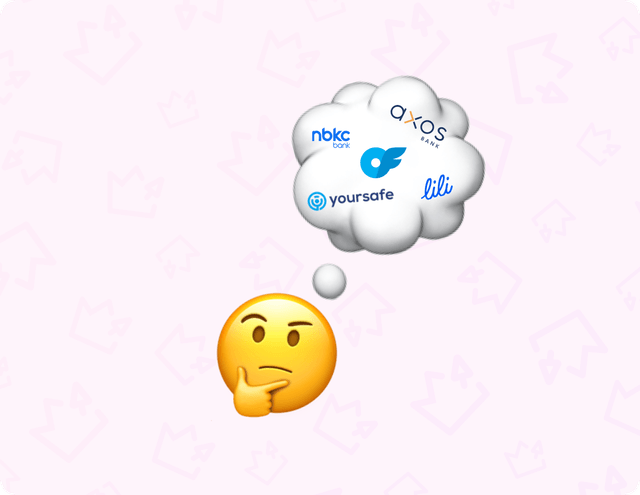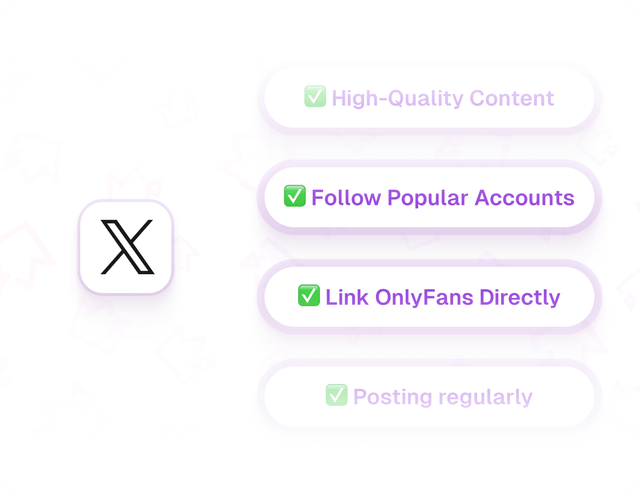Table of contents
Launch your OnlyFans agency: Step-by-step guide
How an OnlyFans agency works?
Establishing an OnlyFans Agency: A Step-by-Step Guide
Launch your OnlyFans agency: Step-by-step guide
In recent years, the adult entertainment sector has undergone a significant transformation, allowing a growing number of individuals to monetize their passion for content creation.
This change has largely been driven by OnlyFans, a platform recognized for granting power to Creators.
Nonetheless, with millions of Creators competing for visibility, distinguishing oneself has become increasingly difficult. In addition to producing content, Creators are also required to promote their profiles and engage with fans on a daily basis, which can complicate personal life management.
This is where OnlyFans agencies come into play. They provide a holistic solution for Creators who are strapped for time, assisting with the organization and marketing of their content while also handling various administrative duties.
Creators collaborating with an agency can focus on their strengths while their agents manage the business aspects.
The advantages for Creators are evident: increased free time, reduced stress, and improved income. From the perspective of agency owners, the rising demand for professional management services presents a lucrative business opportunity.
Interested in launching your own OnlyFans agency? This article will guide you through each step of the journey.

Oct 31, 2024
12 min read
153
How an OnlyFans agency works?
Understanding how an OnlyFans agency operates is essential before starting one. Here’s what you need to know:
Services offered often include content creation assistance, marketing strategies, fan engagement support, financial guidance, and legal advice on matters like copyrights and contracts.
Roles in an Agency
Key positions within an agency typically encompass:
- Agency director: Oversees operations, aligns team efforts, and ensures timely delivery of services.
- Content planner: Develops and organizes content for OnlyFans and various social media channels, ensuring brand consistency.
- Social media coordinator: Implements strategies across multiple social media platforms to increase traffic to the Creator’s OnlyFans accounts.
- Subscriber engagement representative: Often referred to as OnlyFans assistants, these individuals interact with subscribers, ensuring they feel valued and connected to the Creator.
- Financial consultant: Provides guidance on pricing strategies, subscription models, and financial planning.
Revenue Streams
Agencies generally utilize one or more of the following revenue models:
- Commission-based: Agencies retain a portion of the Creator’s earnings.
- Fixed-rate: This model involves a predetermined monthly fee for the services offered, independent of the Creator’s income.
- Hybrid model: Combines commission and fixed fees, offering flexibility according to the Creator's desires.
Legal and Business Factors
Establishing an OnlyFans agency requires careful consideration of various legal and business matters.
- Content regulations: Adherence to OnlyFans’ guidelines is essential, ensuring compliance with their terms and age verification standards.
- Contracts: Formulate clear agreements to safeguard both the agency and Creators regarding services and content usage rights.
- Tax obligations: Accurate income reporting and tracking of deductions are crucial for legal compliance and financial health.
Establishing an OnlyFans Agency: A Step-by-Step Guide
Now that you've grasped the fundamentals of an OnlyFans agency, here’s a straightforward guide to start your journey:
1. Conduct Market Research and Define Your Niche
Before you begin, perform detailed market research to comprehend the industry and pinpoint your niche:
- Identify Your Audience: Determine which types of Creators you want to collaborate with and who their target audience is.
- Analyze Competitors: Investigate current OnlyFans agencies to learn about their offerings, strengths, and areas for improvement.
- Define Your Niche: Select a specific content area to focus on, ensuring it has sufficient market demand.
2. Develop a Business Plan
A solid business plan is crucial for your agency's success:
- Start with an executive summary detailing your mission and goals.
- Include a market analysis covering your research, target market, and competition.
- Outline the services you’ll offer, such as content creation and marketing strategies.
- Prepare a detailed financial plan to project income, expenses, and profitability.
3. Establish a Legal Entity
Choosing the right business structure is vital for legal and tax considerations. Options include:
- Sole Proprietorship: Simple to set up, but lacking personal liability protection.
- Limited Liability Company (LLC): Offers personal asset protection and tax advantages.
- Corporation: Best for larger agencies, providing maximum liability protection and stock options.
4. Choose a Name and Logo
Developing a strong brand identity is key for attracting clients:
- Agency Name: Pick a distinctive name reflective of your agency's values.
- Logo Design: Hire a professional to create an easily identifiable logo.
5. Create a Website
A professional website serves as your agency's digital presence:
- Register a domain and secure hosting.
- Include details about your agency, services, and contact information.
- Ensure user-friendliness and SEO optimization.
6. Establish a Social Media Presence
Having a robust social media strategy is essential for reaching potential clients:
- Select Platforms: Choose the most effective social media channels, like Instagram, Twitter, and TikTok.
- Content Plan: Share your industry insights and showcase client successes.
- Engagement: Build relationships by interacting with followers and influencers.
7. Finding Creators
Once your agency is established, focus on onboarding Creators:
- Outreach Strategies: Use social media and attend industry events to connect with Creators.
- Networking: Engage in online communities and forums where content creators gather.
- Referrals: Offer incentives for existing Creators to refer others to your agency.
8. Onboarding Process
After attracting Creators, begin the onboarding process:
- Schedule a Call: Discuss their goals and introduce them to your agency.
- Create a Contract: Develop a contract to formalize your agreement.
- Reach out to prospective Creators: assemble your team, and establish a foothold on social media platforms!
Recommended from TopCreator

OnlyFans-Friendly Banking in the US – Simplified!
One of the biggest hurdles for creators on OnlyFans isn't just creating content, but dealing with banks that aren't so friendly to adult content. Let's dive into why that happens and how you can find a bank that works for you!
Oct 31, 2024
4 min read
155
1

9 Fun Tips for Promoting Your OnlyFans on X (Formerly Twitter)
Do you want to get your OnlyFans noticed? Then you should definitely consider X (formerly Twitter)! It has a lot of users and is very friendly to marketing. Here’s how to gain a lot of attention; check these easy tips.
Oct 31, 2024
4 min read
151
0

How to start an OnlyFans with ZERO followers
Given the chance to share your authentic self and the allure of financial freedom, it's no surprise that individuals from diverse backgrounds are flocking to OnlyFans.
Oct 31, 2024
12 min read
143
1

Can you bypass OnlyFans Verification as a Creator?
To register as a Creator on OnlyFans, you must complete a verification procedure. If you're curious about how this process operates and if it’s feasible to skip OnlyFans verification, you’re in the right spot.
Oct 31, 2024
8 min read
137
0
Don't miss our new publications

